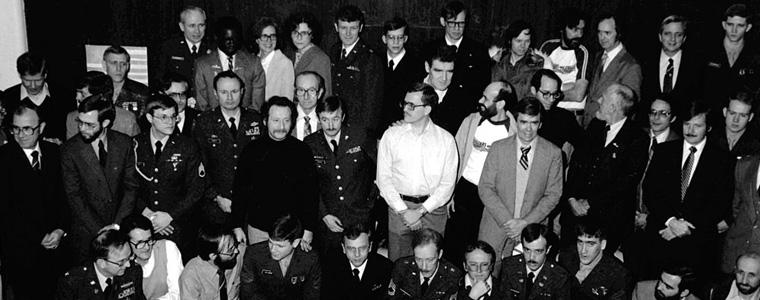A second round of talks with Iran is coming up later this week in Geneva, and the temperature is rising in the region and beyond. The pressure is intense on all sides in the negotiations.

At least 10,000 Iranians resurrected their “Death to America” chants in a Nov. 4 Tehran protest to mark the anniversary of the 1979 seizing of the U.S. Embassy. Iran’s Supreme Leader Ayatollah Ali Khamenei has voiced skepticism that the nuclear talks would be productive, even as he supports them for now. And Israel, Saudi Arabia and others have expressed serious concerns about a possible U.S.-Iran rapprochement.
The nuclear talks resumed last month and place the demands and expectations of Iran against those of the U.S. and its five partners – the other four members of the United Nations Security Council (the UK, France, Russia, and China) and Germany. The U.S. wants a way to guarantee that Iran can never produce nuclear weapons, while Iran wants a lifting of sanctions and the ability to continue enriching uranium, which it says it has a right to do under international law. Iranian leaders say they want a nuclear program only to produce energy and medical isotopes.
Former Ambassador Ryan Crocker has experience negotiating with Iranian officials about Afghanistan in the aftermath of the Sept. 11, 2001, attacks on the U.S. and again when he served as the top U.S. diplomat in Iraq. In a commentary for The New York Times, Crocker said the window of opportunity “is not open-ended.” He recently met with Iranian leaders in New York and said they “seemed receptive” to broadening the nuclear talks to issues such as the future of Afghanistan and the war in Syria.
“They insisted that Iran wants security and stability in the region, not a nuclear arms race,” Crocker wrote.
USIP’s Iran Primer lays out the opposition to a nuclear deal and the new diplomacy between Iran and the six powers in a three-part series. Part 1 is on the concerns in the Persian Gulf, which focus on Iran’s military capabilities, the sectarian balance of power between Shiite Iran and the Sunni sheikhdoms, the ethnic balance between Persians and Arabs, and the competition for close ties with the United States.
Part 2 examines the opposition from Israel, which is based on the potential for Iran to improve its military capabilities, increase support for extremist groups, mend ties with the United States, and gain international legitimacy.
Part 3 of the series concentrates on the resistance to a deal with Iran in the U.S. Congress, which has the power to impose – or lift – sanctions. Lawmakers recently agreed to hold off on adopting a new round of penalties to give talks a chance to proceed. A deepening of sanctions would most certainly send a signal to the Iranians that the U.S. isn’t serious about reaching an agreement.
The Iran Primer, produced in partnership with the Woodrow Wilson International Center for Scholars, marks this week’s anniversary of the 1979 hostage crisis by getting the thoughts of eight of the hostages on the new diplomacy. Barry Rosen, a press attaché when the embassy was seized, believes Iran is interested only in getting American sanctions lifted and has no intention of suspending activities aimed at building a nuclear weapon.
But John Limpert, a political officer at the Embassy in Tehran at the time who most recently served in the Obama administration as a deputy assistant secretary of state for Iran, says, “It's about time for new dialogue.” The Primer article contains a riveting photo of Limpert at the time interviewing Khamenei, who then was deputy minister of defense.
“Thirty-four years is long enough for us to be stuck on a road to nowhere,” Limpert says. “Now we are dealing with a delicate plant that will require very careful handling if it is not to rot or wither.”
Viola Gienger is a senior writer at USIP.